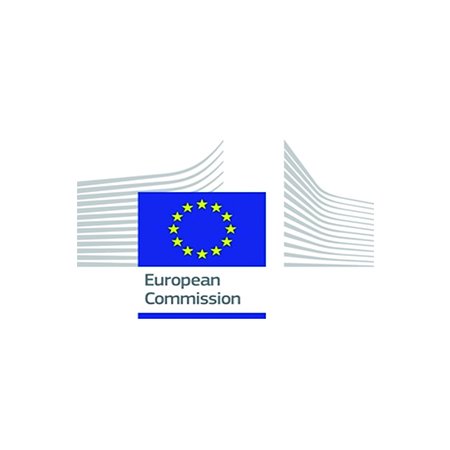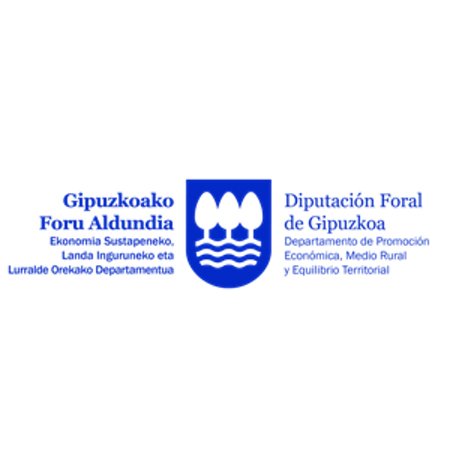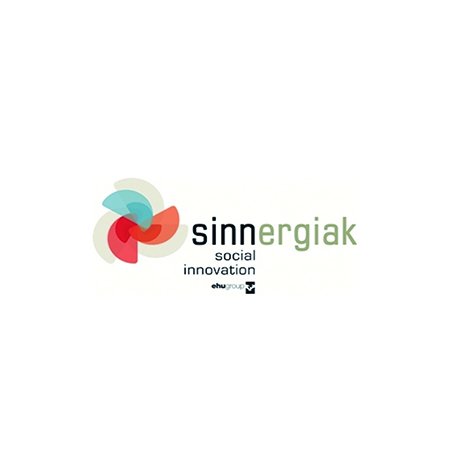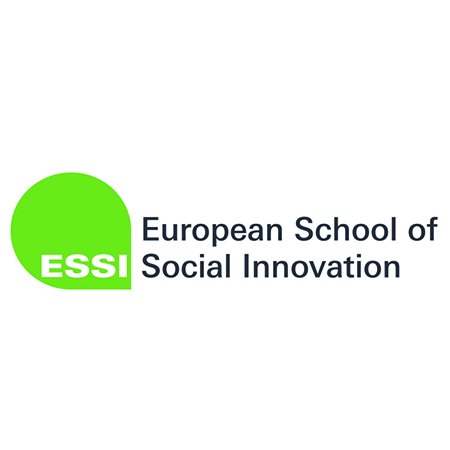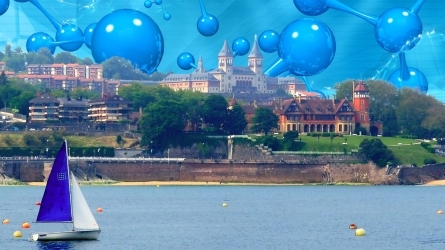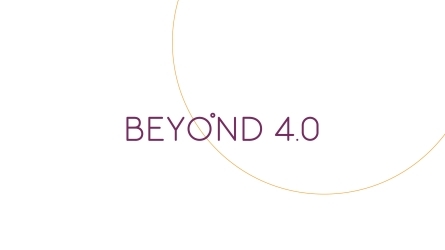
BEYOND4.0 Summer School - Work and Welfare in the Digital Age: What we know and what more we need to know
Descripción
BEYOND4.0 es una acción de investigación e innovación que se desarrolla bajo el lema: «Investigación para el crecimiento inclusivo: abordaje de los efectos socioeconómicos de las transformaciones tecnológicas» del programa de investigación Horizonte 2020 impulsado por la Comisión Europea. El consorcio BEYOND4.0 está formado por nueve universidades y centros de investigación europeos.
Esta escuela de verano incluirá sesiones centradas en la comprensión conceptual e histórica de las transformaciones técnicas y se analizarán los estudios y las investigaciones de campo que se están llevando a cabo en la actualidad, con el objetivo de generar una nueva agenda de investigación. Los participantes evaluarán cómo estudiar el impacto de las nuevas tecnologías en el empleo, los modelos de negocio y el bienestar futuros.
Además de conferencias y talleres, se organizará también una agenda paralela con visitas a empresas.
La escuela de verano abordará las siguientes temáticas:
· Cómo estudiar e investigar el sector laboral y el bienestar en la era digital.
· Qué tipo de conjuntos de datos son útiles y cómo utilizarlos y relacionarlos de la mejor forma posible.
· Cómo estudiar los contextos y ecosistemas regionales y su transformación económica digital.
· Cómo estudiar las consecuencias socioeconómicas derivadas de las transformaciones tecnológicas.
· Cómo entender las competencias y roles futuros de las partes interesadas.
· Cómo estudiar las transformaciones tecnológicas desde una perspectiva histórica.
· Cómo estudiar las estrategias de las empresas que lideran el cambio económico y social.
· Cómo estudiar las economías de las plataformas en relación con el bienestar, la fiscalidad y la seguridad social y la inclusividad.
Objetivos
Aportar nuevos conocimientos científicos sobre la transformación tecnológica.
Aportar nuevos conocimientos científicos sobre las estrategias que adoptan las empresas que afrontan el reto de la transformación tecnológica.
Evaluar el impacto de la transformación tecnológica en cuanto a la calidad, el contenido y la distribución del trabajo; las cualificaciones necesarias; la educación y la formación, y la creación de valor por parte de las empresas.
Identificar diferentes opciones en materia de política fiscal (la creación de impuestos sobre los robots, por ejemplo) y de bienestar (la creación de una renta básica universal, por ejemplo).
Identificar los enfoques y las herramientas de inversión social que hagan posible un crecimiento inclusivo.
Público objetivo al que está dirigida la actividad
- Alumnado universitario
- Profesorado
- Profesionales
- Público en general
- Investigadores/as
Programa
03-06-2019
Registration
“Introduction to the Summer School“Presentación por parte de la Dirección de la actividad
- Egoitz Pomares Urbina Sinnergiak - University of the Basque Country - Researcher
- Christopher Warhurst Institute for Employment Research - University of Warwick - Director
“Scientific Session I: Study the Work in digital age “
- Christopher Warhurst Institute for Employment Research - University of Warwick - Director
- Steven Dhondt Netherlands Organisation for Applied Scientific Research - TNO / KU Leuven - Senior Scientist Researcher
“Scientific Session II: Dataset and best use/connect them“
- Nathalie Greenan CNAM - Conservatoire National des Arts et Métiers - Research Programme Director
- Agnes Parent-Thirion Eurofound - European Foundation for the Improvement of Living and Working Conditions - Senior Programme Manager
Coffee break
Mesa Redonda: “Poster Session for PhD Students and Open Dialogue“
- Dessers Ezra Centre for Sociological Research - HIVA - KU Leuven - Researcher
- Steven Dhondt Netherlands Organisation for Applied Scientific Research - TNO / KU Leuven - Senior Scientist Researcher
Lunch
“Scientific Session III: Socioeconomic effects of digital transformation and innovation “
- Agnes Parent-Thirion Eurofound - European Foundation for the Improvement of Living and Working Conditions - Senior Programme Manager
- Steven Dhondt Netherlands Organisation for Applied Scientific Research - TNO / KU Leuven - Senior Scientist Researcher Manager
“Scientific Session IV: Historical Understanding of Technological Transformations (streamed)“
- Carlota Perez Institute for Innovation and Public Purpose - University College London - Honorary Professor
- Tamsin Murray Leach Institute for Innovation and Public Purpose - University College London - Research Associate
Coffee break
Mesa Redonda: “Round Table and Discussion “
- Peter Oeij Netherlands Organisation for Applied Scientific Research - TNO - Senior Research Scientist (Modera)
- Raymond Montizaan Maastricht University
- Maurilio Pirone University of Bologna
- Mattia Frapporti University of Bologna
“Day 1 Concluding Remarks“
- Christopher Warhurst Institute for Employment Research - University of Warwick - Director
- Dessers Ezra Centre for Sociological Research - HIVA - KU Leuven - Researcher
- Egoitz Pomares Urbina Sinnergiak - Unversity of the Basque Country - Researcher
04-06-2019
“Parallel site visits to companies “
- Egoitz Pomares Urbina Sinnergiak - Unversity of the Basque Country - Researcher
- Steven Dhondt Netherlands Organisation for Applied Scientific Research - TNO / KU Leuven - Senior Scientific Strategist
Lunch
“Policy Session I: Non-technological programmes and policies in the Basque Country“
- Egoitz Pomares Urbina Sinnergiak - Unversity of the Basque Country - Researcher
- Joseba Amondarain Senperena Government of Gipuzkoa (Diputación Foral del Gipuzkoa) - Chief of the Knowledge Promotion Service
“Scientific Session VI: Study socioeconomic transformations“
- Monique Ramioul Centre for Sociological Research - HIVA - KU Leuven - Head of Research Group
- Dessers Ezra Centre for Sociological Research - HIVA - KU Leuven - Researcher
Coffee Break
“Workshop: Beyond4.0 with Technequality and Plus (H2020 projects): The perspectives on transformation“
- Vassil Kirov Institute for the Study of Societies and Knowledge - Bulgarian Academy of Sciences - Associate Professor
- Mark Levels Maastricht University
- Maurilio Pirone University of Bologna
“Day 2 Concluding remarks“
- Christopher Warhurst Institute for Employment Research - University of Warwick - Director
- Monique Ramioul Centre for Sociological Research - HIVA - KU Leuven - Head of Research Group
05-06-2019
“Scientific Session VII: Skills debate in the digital age“
- Michael Kohlgrüber SFS - TU Dortmund University - Senior Scientist
- Antonius Schröder SFS - TU Dortmund University - Social Scientist
“Scientific Session VIII: Studying Welfare in the Digital Age“
- Esa Karonen Department of Social Sciences - University of Turku - Project Researcher
- Steven Dhondt Netherlands Organisation for Applied Scientific Research - TNO / KU Leuven - Senior Scientist Researcher
Coffee break
“Policy Session II: What is workplace innovation and why it need to be promoted“
- Joseba Amondarain Senperena Departament of Economic Promotion - Government of Gipuzkoa - Chief of Knwoledge Promotions Service
- Peter Oeij Netherlands Organisation for Applied Scientific Research - TNO - Senior Research Scientist
- Egoitz Pomares Urbina Sinnergiak - University of the Basque Country - Researcher
Mesa Redonda: “Scientific SessionV: Regional context and ecosystem“
- Wouter Van Bockhaven University of Antwerp - Researcher and Lecturer (Modera)
- Frans van der Zee Netherlands Organisation for Applied Scientific Research - TNO - Senior Research Scientist/Economist
Lunch
“Day 3 Agenda for the Future“
- Christopher Warhurst Institute for Employment Research - University of Warwick - Director
Mesa Redonda: “Parallel Session: BEYOND4.0 Partners - WP 4 Preparation Meeting“
- Frans van der Zee Netherlands Organisation for Applied Scientific Research - TNO - Senior Strategist
“Parallel Session: Organisations in the digital transformation “
- Monique Ramioul Centre for Sociological Research - HIVA - KU Leuven - Head of Research Group
“Parallel Session: BEYOND4.0 Partners - WP2 Guidelines“
- Christopher Warhurst Institute for Employment Research - University of Warwick - Director
Coffee-break
“Concluding Remarks“
- Antonius Schröder SFS - TU Dortmund University - Senior Scientist
- Steven Dhondt Netherlands Organisation for Applied Scientific Research - TNO / KU Leuven - Senior Research Scientist
Directoras/es

Egoitz Pomares Urbina
Universidad del País Vasco/Euskal Herriko Unibertsitatea, Ikerlaria
Egoitz holds a Bachelor of Laws (major in Economics), a MBA and MA in Social Innovation. He obtained his international PhD on Social and Legal Sciences by the University of the Basque Country. Since 2013 is part of Sinnergiak, a research organisation of the University of the Basque Country. In addition to his academic background he is a member of the Steering Committee of the European Workplace Innovation Network (EUWIN) and Member of the Beyond4.0 and GI-NI projects (H2020) Executive Boards.

Christopher Warhurst
Institute for Employment Research-University of Warwick
Professor Chris Warhurst (PhD) is Director of IER. He has over 25 years’ experience of research and teaching in higher education and 15 years’ experience directing research centres/institutes. He is a Trustee of the Tavistock Institute in London, an Associate Research Fellow of SKOPE at the University of Oxford and a Fellow of the Royal Society of Arts. He is also Chair of the Editorial Management Committee of Human Relations. His research focuses on job quality, skills and technology and work. He is a former editor of the leading international journal Work, Employment and Society and was an Executive Board member of the Society for the Advancement of Socio-Economics and a director of the Scottish Low Pay Unit. He has been an expert advisor to the UK, Scottish, Hungarian and Australian Governments as well as the OECD, Oxfam and the Scottish Living Wage Campaign.
Ponentes
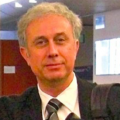
Joseba Amondarain Senperena
DIPUTACION FORAL DE GIPUZKOA
Economist from Guipuzcoa born in Donostia-San Sebastián in 1958. Graduate in Business Studies from the University of Deusto, he also studied Philosophy at the University of the Basque Country. Since 1984 he has worked as a chief of service in the Department of Economy of the Provincial Council of Gipuzkoa; later to direct the service of Promotion of the knowledge and the business activity.

Steven Dhondt
Steven Dhondt PhD is senior research scientist at TNO (SPE) and Visiting Professor at the Catholic University of Leuven (chair: Workplace Innovation). Steven has been involved in large scale EU-projects (HiRes; Meadow; the European learning network on Workplace Innovation (EUWIN); SI DRIVE, SIMPACT, SHINE) and projects for interna- tional organisations (ILO, EU-OSHA, Eurofound). He is the coordinator of the FWO/SBO Paradigms-project which develops strategies for workplace innovation in Belgium. Dhondt is responsible for the development of a monitor for measuring technology and labour market impacts (Institute GAK (NL); Shift2Rail (EU)). He has written extensively on workplace innovation, quality of work and innovation. He co-ordinates a major TNO research programme on Smart Work. He is member of several advisory/management boards for Euro- found, INSCOPE, sfs-TUDO and major EU-projects (Finland, Germany, Norway, Belgium).

Dessers Ezra
Ezra Dessers PhD, is Research Manager at HIVA-KU Leuven and Assistant Professor at KU Leuven. He is actually in charge of Paradigms 4.0, a multidisciplinary research project that investigates how key enabling technologies, which are considered to be the motors behind the ongoing digital transformation of industry, could foster societal aims, while at the same time cradle high performance organisations. Paradigms 4.0 studies the relation between technology and work organisation, the link with occupational health and safety, the shifting needs in terms of skills and competencies, the role of worker participation in innovation, and the labour market impact of these new technologies. The project looks at how the gained insights might serve as building blocks for high road strategies towards Smart Industrial Specialisation at the level of organisations and ecosystems.

Mattia Frapporti
Mattia Frapporti has obtained his PhD in History and Cultures at the University of Bologna with a research thesis entitled “The logistics space of the United Europe. On Jean Monnet and the rationality of integration”. His focuses are on the process of European integration, the politics of infrastructures, logistics and the role of State. His now post-doc fellow at the University of Bologna mainly focusing on platforms in the urban spaces and on the genealogy of logistics.

Nathalie Greenan
Nathalie Greenan, PhD, directs the research program, Organisational changes, work and employment of the Centre for Employment and Labour Research (CNAM-CEET) in the Conservatoire National des Arts et Métiers. Detached from the National Centre for Scientific Research (CNRS), she is a member of LIRSA (Laboratoire Interdisciplinaire de Recherches en Sciences de l’Action) and of the research federation on work, employment and Public Policy (TEPP, FR N°3435 CNRS). She holds a PhD in Economics from the Ecole de Hautes Etudes en Sciences Sociales (EHESS) and an accreditation to supervise research (HDR) from Paris East University. Her main interests are in the theoretical and empirical study of changes within organisations, their economic performance and their effects for employees and on the labour market. As a scientific expert on skills and work organisation, she is currently involved in developing the questionnaires for the upcoming PIAAC survey and the fourth edition of the ECS.
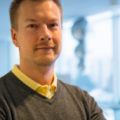
Esa Karonen
Currently Esa is conducting research on how economic shocks, taxes and national social guidance systems will have an effect on the various forms intergenerational economic inequalities.

Vassil Kirov
Dr Vassil Kirov PhD (Sciences Politiques) is Associate Professor in the Institute for the Study of Societies and Knowledge, Bulgarian Academy of Sciences (ISSK) and Asso- ciate researcher at the Centre Pierre Naville, University of Evry (France) and at the European Trade Union Institute (ETUI). His research interests are in the sociology of enterprise, work and organisations, employment relations, digitalization labour markets and Europeanisation. Vassil Kirov has been a researcher in large EU-funded research projects and has worked as an external expert for the European Commission, ILO, Eurofound, CEDEFOP, the Fundamental Rights Agency, the Swiss Development Agency, etc. Currently he is a Visiting Professor at Sciences Po, France and LISER, Luxembourg. He has published several books and articles in international scientific journals, including on digitalization and platform work.
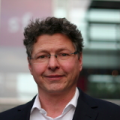
Michael Kohlgrüber
Dr Michael Kohlgrüber (male) is an economist, doing research in business, economic and social sciences. Since 2012, he is senior researcher at Social Research Centre (sfs). His cur- rent research is focused on the integration of social and technological innovation in indus- trial companies. In the context of Industry4.0, he is developing and implementing social requirements related to the design of sociotechnical systems (technology-organization-peo- ple/skills), i.e., implementing social innovation processes, getting users and stakeholders of new technologies involved in defining social requirements. This includes the perspective of employees and their representatives (work councils, trade unions). Furthermore, he is doing research on the situation and perspective of low-qualified workers considering the contri- butions of different actors of the labour market and national VET systems.
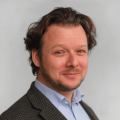
Mark Levels
Prof. dr. Mark Levels is Professor of Health, Education and Work at Maastricht University. He is program director of the research program Health, Skills, and Inequality at the Research Centre for Education and the Labor Market (ROA) of Maastricht University, member of the ROA management team, associate member of Nuffield College in Oxford (UK), fellow of the Graduate School of Business and Economics (GSBE)of Maastricht University, and fellow of the Amsterdam Centre for Learning Analytics (ACLA). He teaches macrosociology at University College Maastricht (UCM).
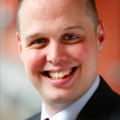
Raymond Montizaan
Raymond Montizaan is researcher at the Research Centre for Education and the Labour Market (ROA). He holds a Master’s degree in Economics from Tilburg University and a Master’s degree in Domain Orientated Economics from Radboud University Nijmegen. He obtained his PhD from Maastricht University in 2010. Before joining ROA, he worked at the Netherlands Bureau for Economic Policy Analysis (CPB). He is affiliated to NSI and IZA. In his current work, he focuses on the relation between human capital development, productivity and retirement, and behavioral economics.
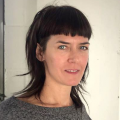
Tamsin Murray Leach
IIPP-UCL
Tamsin Murray Leach is an Honorary Research Associate at the Institute for Innovation and Public Purpose (IIPP). Tamsin has worked both in the commercial and academic sectors as a writer, editor and researcher. Prior to this she was a researcher, book editor and project manager in the Global Civil Society unit at the London School of Economics and Political Science, where she holds an MSc (with distinction) in Human Rights. As a journalist, she contributed regularly to the national press. Tamsin is the research officer for "Beyond The Technological Revolution", the project led by Carlota Perez, which analyses the historical role of the state in shaping the context for innovation and development.
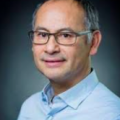
Peter Oeij
TNO
Peter Oeij, PhD is a senior research scientist. He is and was involved in several EU- projects and international projects for EU-statutory organizations (such as OSHA, Euro- found). Until recently he was TNO-project leader of the just finished SI Drive (H2020/FP7) project and of the Eurofound study on ‘Workplace Innovation in European companies (ended in 2015). Peter holds a PhD in management science and is an editorial board member of four journals. The focus of his work is on innovation management, workplace innovation, social innovation and organizational and team dynamics.
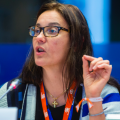
Agnes Parent-Thirion
Agnès Parent-Thirion is senior research manager in the Working Life unit at Eurofound, tasked with the planning, development and implementation of working conditions research projects, in particular the European Working Conditions Survey (EWCS) and its analyses. Her research interests include working conditions, job quality, the monitoring of working conditions, work organisation, gender, the future of work and time. She has been working in the area of European comparative surveys for more than a decade, in all aspects including design, questionnaire development, fieldwork, quality control and analysis. She is a graduate in economics and management from Paris IX Dauphine and Paris I Panthéon Sorbonne. Before joining Eurofound, she worked for a number of years in the European Commission.

Carlota Perez
Carlota Perez is the Honorary Professor of Technology and Development for IIPP at UCL; Professor of Technology and Development at the Ragnar Nurkse Institute, Technological University of Tallinn (TUT), Estonia; Visiting Professor at LSE since her fixed tenure as LSE Centennial Professor (2013-2016); and Honorary Professor at SPRU (Science and Technology Policy Research), University of Sussex, a post that began with a research fellowship in 1983. From 2015-2016 she was the Chair of the European Commission’s Horizon 2020 Expert Group for Green Growth and Jobs, and was Member of the Economic Advisory Panel of the UN Global Commission on the Economy and Climate in 2013-14. Carlota has written extensively on the socio-economic impact of technical change and the historical context of growth and development.
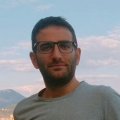
Maurilio Pirone
University of Bologna
Maurilio Pirone is Post-Doc Fellow in "Discipline of labour and new processes of unionism in platform economy" for the Horizon2020 Project PLUS (Platform Labour in Urban Spaces). Previously, he completed his PhD in Politics, Istitutions, History at the Department of Social and Political Sciences of University of Bologna with a final dissertation titled "The government of labour-force. Production and subjectivity in Marx" (supervisor Prof. Sandro Mezzadra). He is member of Into the Black Box research group and is project manager. His research deal with platform capitalism, new forms of urban unionism, the impact of digital technologies on labour discipline, logistics.

Monique Ramioul
Monique Ramioul worked as a researcher at the department of labor and organizational sociology of the Department of Sociology of the K.U.Leuven, as a consultant at the Technology Flanders - SERV Foundation and the University to the Employment and Training Center, where she was responsible for the annual reporting on the Flemish labor market. Between 1999 and 2000 she worked as an advisor at the Unit Policy and Program Evaluation of DG Information Society (EC). Since 2000 she has been a research leader at the research group labor and organization. Monique Ramioul is mainly involved in European research on changes in work. Her research is about organizational changes. Central to the change processes and the impact on employment, on the content and quality of the work, on the required competences, on the flexibility etc. This research domain is mainly developed in a European comparative perspective and encompasses both quantitative analyzes and qualitative research methods.
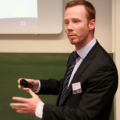
Wouter Van Bockhaven
Wouter Van Bockhaven received his PhD in Applied Economic Sciences from the University of Antwerp in 2014. He is a researcher and lecturer at the University of Antwerp, Faculty of Applied Economics’ Management department. His research focuses on how firms can develop innovation networks to tackle institutional and social barriers preventing the creation of ‘shared value’. His research combines qualitative and quantitative approaches to address real-life challenges experienced by managers in a.o. the pharmaceutical, medical devices, machine building and steel industry. He is also active in research and tool development for career management. His work is presented at conferences of the Strategic Management Society, the Industrial Marketing and Purchasing group, the Society for Industrial and Organizational Psychology and the European Institute for Advanced Studies in Management and published in Industrial Marketing Management, Journal of Business and Industrial Marketing and HRSquare.

Frans van der Zee
Frans van der Zee PhD, is a senior research scientist/economist at TNO (Strategy & Policy, The Hague) and visiting researcher at the Joint Institute for Innovation Policy(Brussels). Specialised in economics of innovation and technology and innovation policy and advice, one his lines of research concerns the future of work, jobs and skills and in relation to emerging and (key) enabling technologies, and - broader - Industry 4.0, as exemplified by studies on robotization, automation and the future of skills and jobs (client: Dutch Parliament), and ditto on KETs (DG RTD). Another line of research focuses on open innovation and ecosystems (DG RTD; European Parliament) which closely connects to the de- sign and assessment of R&I policy, including recent work on mission-oriented policy (2 projects for DG RTD), on smart specialization (OECD) and on innovative enterprises. Van der Zee holds an MSc in Development and Agricultural Economics (1989, cum laude) and a PhD in Economics.
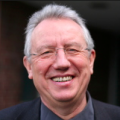
Antonius Schröder
Dr Antonius Schröder is a senior researcher and member of management board of sfs, responsible for European research. He is working in the research area “Work and Edu- cation in Europe” and has worked in and managed several European projects in the fields of industrial change and social dialogue, continuous vocational training, (distant) learning arrangements, evaluation, organisational and personnel development. He is Vice-Chairman of the Working Group People (Human Resources) at the European Steel Technology Plat- form ESTEP.
Precios matrícula
| MATRICULA | Hasta 03-06-2019 |
|---|---|
| 50,00 EUR | |
| 0 EUR |
Lugar
Palacio Miramar
Pº de Miraconcha nº 48. Donostia / San Sebastián
Gipuzkoa
Palacio Miramar
Pº de Miraconcha nº 48. Donostia / San Sebastián
Gipuzkoa
